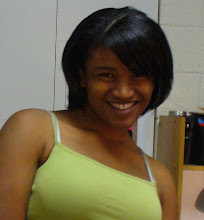I'm going to try to make this as non-anecdotal as possible, but this topic of teaching black people proper English really makes me mad. Barbara Schneider starts her article by telling us how the different types of black people separate themselves based on clothes (economical standing). I immediately thought: where would I sit? Well, she placed me right, In the middle of the classroom, in the front, wishing I had sat closer to a cute guy who needed tutoring. Though interesting, this is not the main part that got my attention.
Further in the article she refers to something called "Black English." "In their reading of the 1979 Ann Arbor 'Black English' court case, Ball and Lardner explain that the plaintiffs succeeded in establishing that teachers' negative attitudes toward the children who spoke African American English created a nonstructural barrier that interfered with the education of African American English-speaking children" (925). Wow. When a Hispanic, Chinese, Italian, German, basically any other truly non-English speaking student makes a mistake with their English, a teacher would have every right and responsibility to correct them. But, since a black student is struggling, the negative attitudes are hindering their education in some way. I really do not understand.
What is worse is that there is no Black English. Since the beginning of my college career I have heard this term, describing the way some black people talk (and also most teens of all races) as a different type of English altogether, a whole new language. This is what irritates me. I have done no scholarly research on this subject, but being black, I think I can say with certainty that there is no Black language that other people can't speak, or wouldn't understand if I spoke it in front of them. This language is not a language at all, but slang, which in the world of academia should be stomped out and corrected immediately.
Lisa Delpit brushes on the same topic, but presents it in a different light. "There are two aspects of Gee's arguments which I find problematic. First is Gee's notion that people who have not been born into dominant discourses will find it exceedingly difficult, if not impossible, to acquire such a discourse, He argues strongly that discourses cannot be 'overtly' taught, particularly in a classroom, but can only be acquired by enculturation in the home or by 'apprenticeship' into social practices. Those who wish to gain access to the goods and status connected to a dominant discourse must have access to the social practices related to that discourse" (1312). She disagrees (and I'm thinking: "Yea, you tell him!) then she gives us some rare exceptions to a widely known norm (ugh). But, her point is still valid and brings up some interesting things to think about.
First, black students can learn English, regardless of their background before entering school. If children can learn English as a second language (which they do all the time) then, I can't buy that black students would have a harder time than second language learners, when they already speak (no matter how poorly) English.
But, I want to look at the language and apply it to the gender topic. "Dominant Discourse" this screams to me: Patriarchal. Right now I am basically arguing in my paper that classrooms need to be more concerned with female students' learning, because of patriarchal elements in the classroom. But, how can I say on one hand black students should be able to learn English, despite their disadvantages, but argue for time to be taken out of "dominant discourse" to teach female students?

